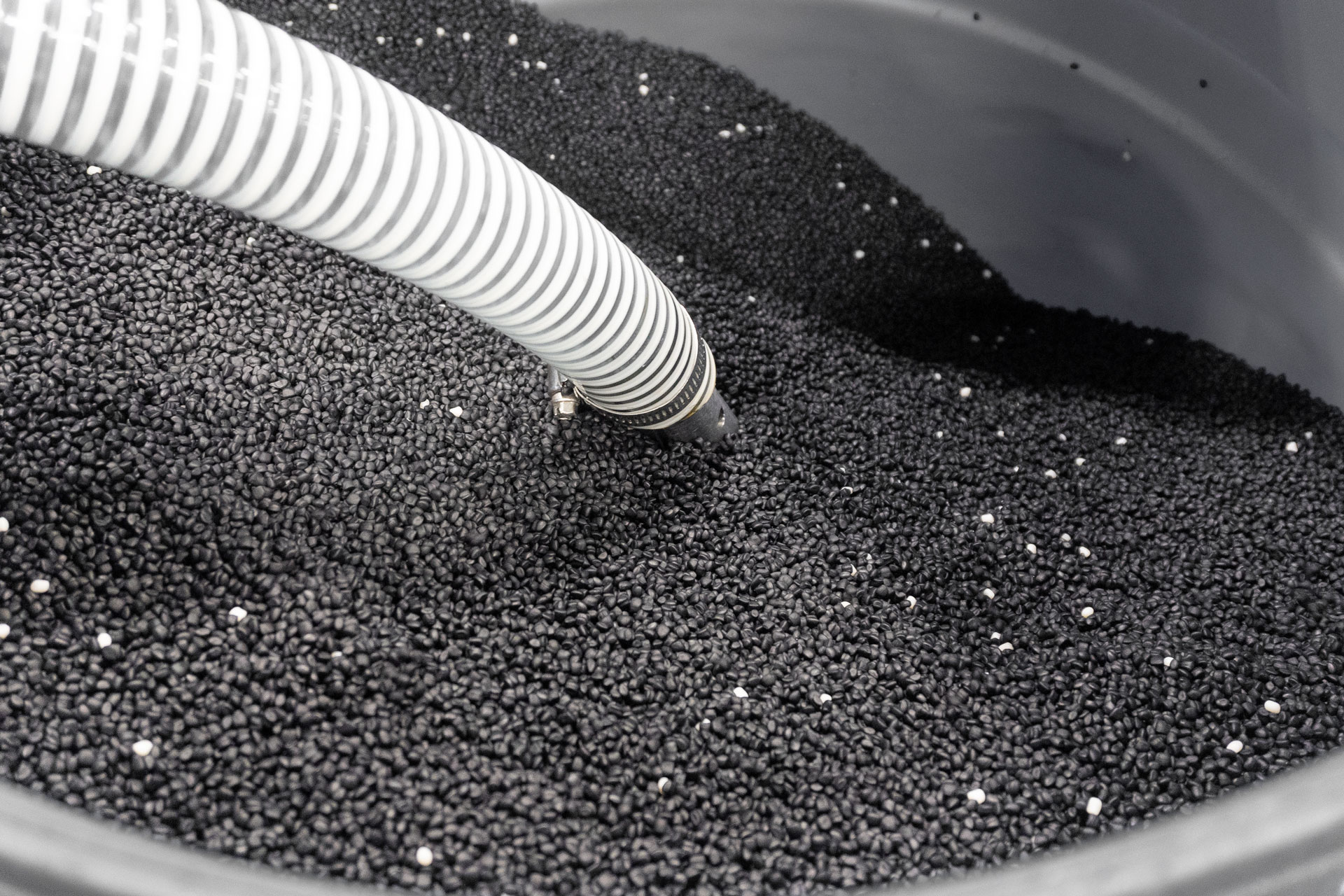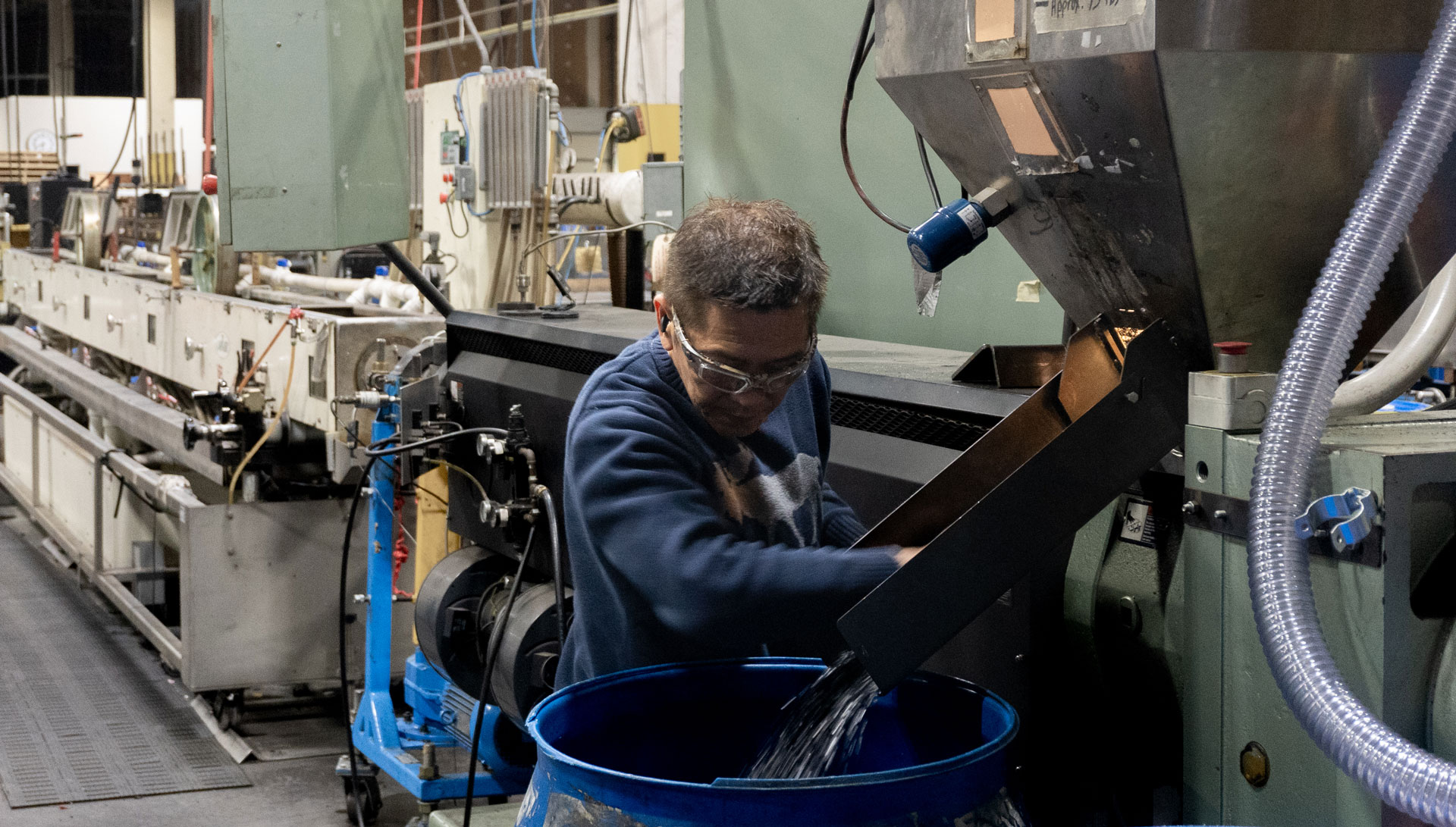Seals and Sustainable Building Practices
Recycling, Circular Economy, and TPV
For manufacturers in the fenestration industry looking to bring more sustainable systems to market, there is no easier component to update than the glazing seals. Thermoplastic Vulcanizates (TPV’s) produce more environmentally friendly seals than their thermoset counterparts (EPDM, silicone), and align perfectly with the principles of the circular economy of production. Reed Rubber chooses TPV because of its value to the circular economy through its 100% recyclability and contribution to greener, more sustainable building practices.
What is the Circular Economy
The circular economy is a model of production and consumption that focuses on minimizing waste, maximizing material reuse, and extending product lifecycles. Traditional manufacturing employs a “take-make-dispose” method, while a circular economy works to keep materials in circulation for as long as possible, reducing the environmental impact of production considerably.
The ideal material will be recyclable at the beginning, middle, and end of their product lifecycle. Our TPV material does just that. “In situations requiring complicated tooling and R&D for a new, innovative product, we might require a great deal of material before the product is perfected,” says Eric Woodshank, Tooling Engineer. “Fortunately, the waste can be reused and recycled.” Woodshank adds that “the other benefit is the cost-saving for production, savings which we are excited to pass onto our customers.”

Why TPV is the Greener Option
On a chemical level, TPV is a dynamically vulcanized polymer that consists of fully cured EPDM molecules suspended in a matrix of polypropylene.
Thermosets like EPDM and silicone, which are commonly used in fenestration applications, are effectively single use. They may not be reshaped after the initial curing process. In contrast, TPV can be re-ground and re-extruded over and over, allowing for reusable production scrap and end-of-life recycling. This is called a closed-loop system and allows for the reduction in need for virgin materials, lowers energy consumption, and minimizes waste that would otherwise end up in landfill. It is this quality that makes TPV a critical material for widespread adoption in the fenestration industry as it moves toward more sustainable building practices.

Supporting Sustainable Building Practices
In the ever-increasing demand for green building certifications like LEED, TPV’s recyclability becomes an even greater selling point for builders and glaziers looking to meet or exceed sustainability standards. Since TPV boasts efficiency in both its 100% recyclability and its energy efficiency through superior insulation and weather resistance, it plays a compounding role in promoting sustainable building practices.
Builders, glaziers, and developers can also use TPV glazing seals to qualify projects for credits in the areas of materials and resources, indoor environmental quality, and energy and atmosphere in green building certification programs. This makes it an ideal choice to meet increasingly stringent environmental standards with no sacrifice to performance or cost-effectiveness.
If you’re following green building practices or simply looking for a higher quality seal product for your fenestration and glazing needs, Reed Rubber’s TPV products are the answer for manufacturers, builders, and architects to contribute to a more sustainable future for the fenestration industry without any compromise to quality and performance. Contact us today to discuss your next project!
